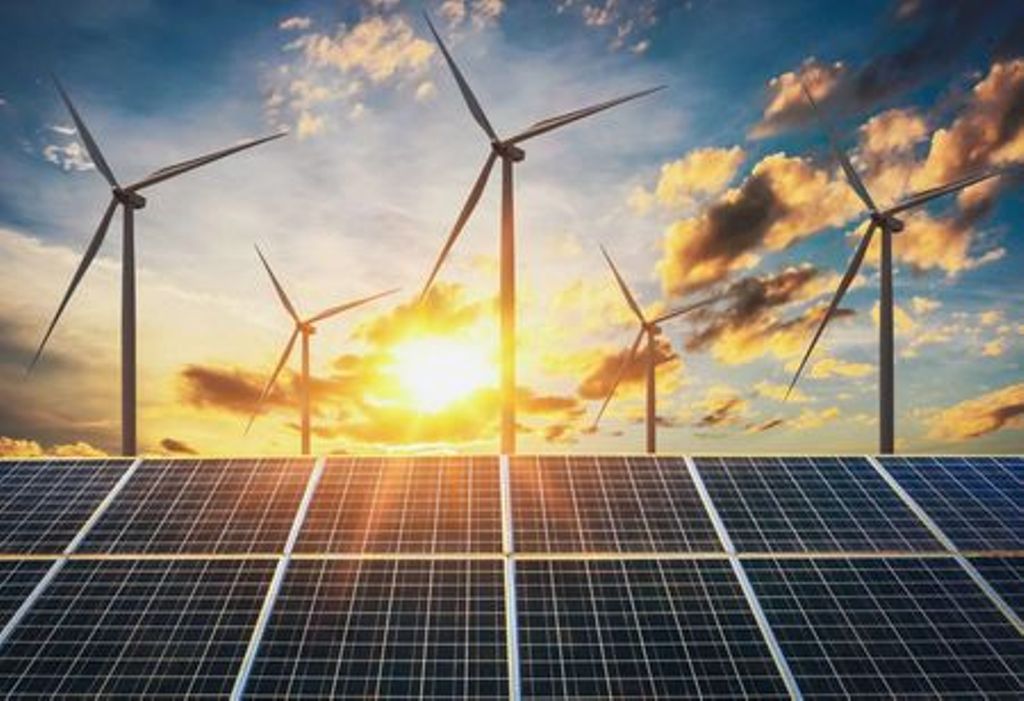 Shalin Sheth, a visionary with a rich background in the power industry, is the Founder and Managing Director of Advait Infratech. Hailing from Gujarat, he holds a bachelor's degree in mechanical engineering from Birla Vishvakarma Mahavidyalaya (1994) and a PGDMA in Business Administration and Management from Ahmedabad Management Association and Indian Institute of Management - Ahmedabad.
Shalin Sheth, a visionary with a rich background in the power industry, is the Founder and Managing Director of Advait Infratech. Hailing from Gujarat, he holds a bachelor's degree in mechanical engineering from Birla Vishvakarma Mahavidyalaya (1994) and a PGDMA in Business Administration and Management from Ahmedabad Management Association and Indian Institute of Management - Ahmedabad.
With over 22 years of extensive experience in the power and telecom sector, Sheth embarked on an entrepreneurial journey in 2009, founding Advait Infratech. The company is renowned for manufacturing and supplying OPGW, ACS, OFC, ERS, and Stringing Tools, and has achieved an impressive milestone of completing 10,000 kilometers of live line installations, setting them apart in the industry.
Shalin Sheth is at the forefront of pioneering green energy solutions, leading Advait's expansion into clean energy through green hydrogen integrators and EPC and Carbon Consultancy projects. With rapid growth and involvement in diverse sectors, Advait is now listed on the Bombay Stock Exchange - Main Board and has recently announced its first 1:1 bonus issue, reflecting its significant market impact.
In this thought provoking article, he discusses the imperative of transitioning to green energy sources in the face of climate change impacts. He also explores the scope of sustainable power generation, highlighting opportunities and challenges that pave the way towards a cleaner, more resilient, and equitable energy future.
Scroll down to read the full article:
As the world struggles with the increasing impacts of climate change, transitioning to green energy sources has become an imperative to mitigate the environmental and social consequences of traditional fossil fuels.
The concept of ensuring sustainable power generation brings forth a wide range of opportunities to create a cleaner, more resilient, and equitable energy future. Let us explore the various opportunities and obstacles that arise in the realm of sustainable energy, shedding light on the path towards a greener and more sustainable world.
Scope of Sustainable Power Generation
1. Renewable Energy Sources: The foundation of green energy transition is with leveraging renewable resources such as solar, wind, hydro, geothermal, and biomass. These sources offer limitless energy potential.
Rapid advancements in technology have made these sources increasingly cost-competitive, even surpassing conventional fossil fuels in some cases. Countries can significantly reduce greenhouse gas emissions and dependency on limited resources by leveraging these resources.
2. Energy Storage Solutions: Intermittency is one of the main challenges with renewable energy. It is because the sun does not always shine and the wind is not always constant. However, innovative energy storage solutions, such as battery technology, pumped hydro storage, and compressed air energy storage, are emerging as game-changers.
These revolutionary systems enable excess energy to be stored during periods of low demand and released when demand spikes, ensuring a stable and reliable power supply.
3. Electrification and Decentralization: The electrification of various sectors like transportation, heating, and industry can reduce reliance on fossil fuels. Embracing decentralized energy systems empowers communities to generate their own power locally, promoting energy security, resilience, and democratization of the energy sector.
4. Technological Advancements: Rapid advancements in green technologies, such as improved solar panel efficiency, taller wind turbines, and enhanced grid management systems, continue to revolutionize the renewable energy landscape. Investments in research and development are crucial in unlocking new opportunities and driving down costs.
5. Green Jobs and Economic Growth: The transition to green energy is a catalyst for job creation and economic growth. Investments in renewable energy projects generate employment opportunities in the renewable energy sector and stimulate various other industries involved in the supply chain.
Common Challenges in Sustainable Power Generation
1. Infrastructure and Investment: Shifting from conventional to green energy sources requires significant investment in infrastructure. Building and upgrading energy grids, establishing new power plants, and implementing energy storage solutions demand substantial financial commitments. Governments, businesses, and international organizations must collaborate to mobilize the necessary funds.
2. Energy Policy and Regulation: Inconsistent or inadequate energy policies and regulations can hinder the adoption of green energy technologies. Ambiguous policies may discourage investors, while supportive regulations can accelerate the transition. Policymakers must craft robust frameworks that incentivize sustainable energy adoption and penalize carbon-intensive practices.
3. Grid Integration and Stability: As renewable energy sources are integrated into existing power grids, grid stability and management challenges arise. The fluctuating nature of renewable energy generation requires smart grid solutions like ERS to balance supply and demand efficiently.
4. Land Use and Environmental Concerns: While renewable energy sources are cleaner than fossil fuels, they are not entirely devoid of environmental impacts. Large-scale deployment of certain technologies, like hydroelectric dams and solar farms, can lead to habitat disruption and biodiversity loss. Proper site selection and environmental impact assessments are vital to mitigate these effects.
5. Energy Transition and Social Equity: Transition to green energy must be inclusive and considerate of social equity. Communities heavily reliant on fossil fuels for livelihoods may face economic challenges during the transition.
Ensuring a just and fair transition involves retraining and reskilling workers from fossil fuel industries. It will assist in providing job opportunities in the renewable sector while addressing energy affordability for vulnerable populations.
Conclusion
The transition to sustainable power generation offers lucrative opportunities to combat climate change, reduce pollution, and promote economic prosperity. By leveraging renewable resources, investing in energy storage solutions, and embracing technological advancements, we can build a greener, more resilient energy landscape for future generations.
Still, this transformational journey faces some challenges. Overcoming infrastructure, policies, grid integration, and social equity challenges is critical to achieving a successful green energy transition. By acknowledging and addressing these challenges, governments, businesses, and individuals can collaboratively accelerate the adoption of sustainable energy and look forward to a brighter, more sustainable future for all.





 Shalin Sheth, a visionary with a rich background in the power industry, is the Founder and Managing Director of Advait Infratech. Hailing from Gujarat, he holds a bachelor's degree in mechanical engineering from Birla Vishvakarma Mahavidyalaya (1994) and a PGDMA in Business Administration and Management from Ahmedabad Management Association and Indian Institute of Management - Ahmedabad.
Shalin Sheth, a visionary with a rich background in the power industry, is the Founder and Managing Director of Advait Infratech. Hailing from Gujarat, he holds a bachelor's degree in mechanical engineering from Birla Vishvakarma Mahavidyalaya (1994) and a PGDMA in Business Administration and Management from Ahmedabad Management Association and Indian Institute of Management - Ahmedabad.


.jpg)










